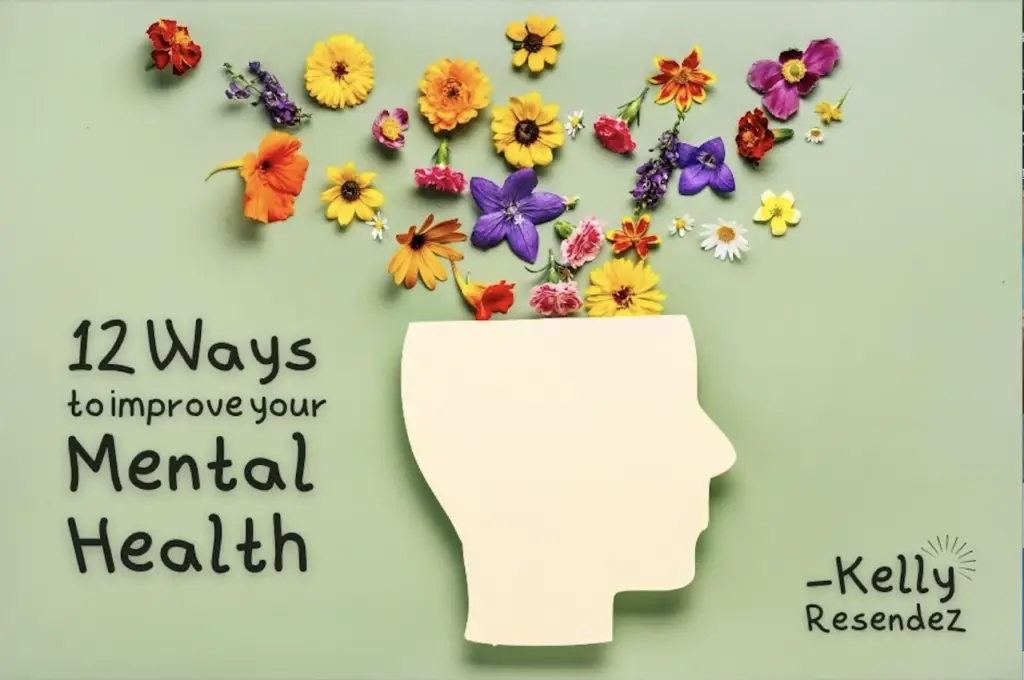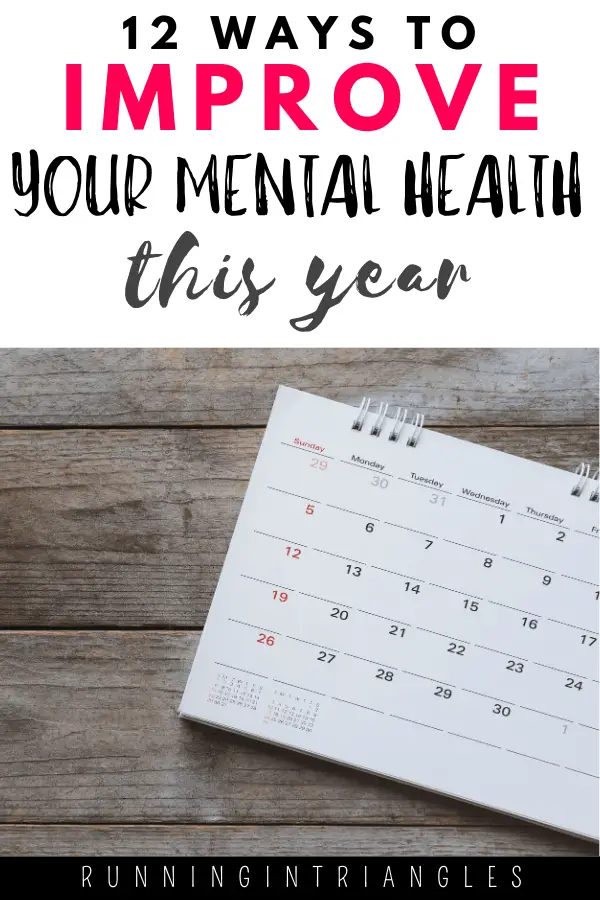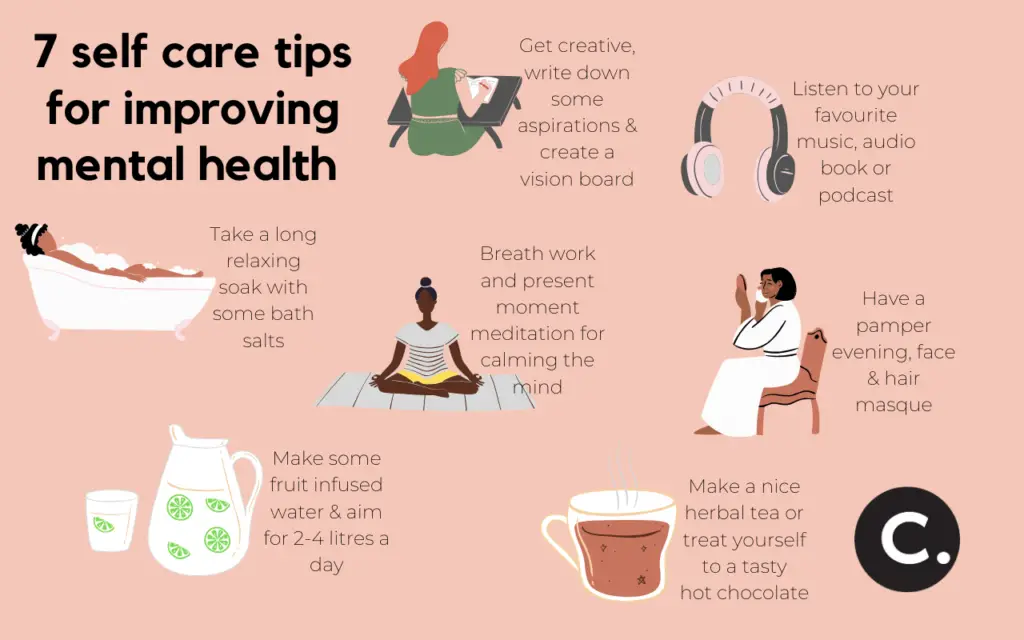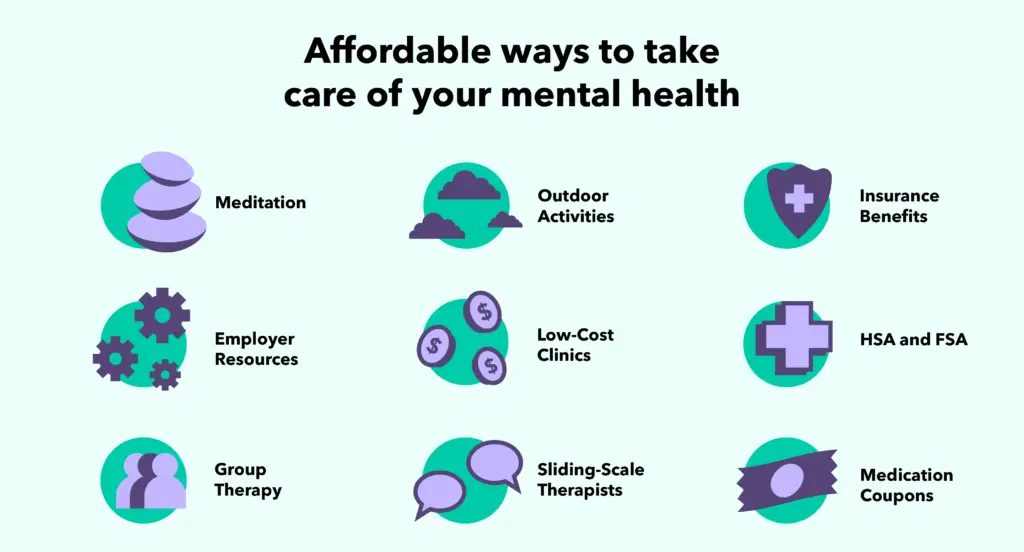In this article, I will share with you 12 low-cost ways to improve your mental health. We will explore different strategies and techniques that can be incorporated into your daily life without breaking the bank. By making small adjustments and adopting a frugal lifestyle, you can prioritize your well-being and experience the benefits of improved mental health. So, let’s dive in and discover these budget-friendly ways to enhance your overall well-being.
12 Low-Cost Ways to Improve Your Mental Health
In today’s fast-paced world, it’s easy to neglect our mental well-being. However, taking care of our mental health is just as important as taking care of our physical health. The good news is, improving your mental health doesn’t have to be expensive. There are many low-cost strategies that can make a positive impact on your well-being. In this article, I will share 12 low-cost ways that you can improve your mental health.
Exercise Regularly
Engage in aerobic activities
Physical activity is not only beneficial for our physical health but also for our mental well-being. Engaging in aerobic activities such as jogging, cycling, or dancing can release endorphins, also known as the “feel-good” hormones, which can boost your mood and reduce stress. You don’t need an expensive gym membership to stay active. You can simply go for a run or dance to your favorite music in the comfort of your own home.
Try yoga or pilates
Yoga and pilates are excellent forms of exercise that not only strengthen your body but also promote relaxation and mindfulness. Many yoga and pilates classes are available online for free or at a minimal cost. You can also find instructional videos on platforms like YouTube. All you need is a yoga mat or a soft surface to practice on.
Take a walk in nature
Spending time in nature has been proven to have a positive impact on mental health. Taking a walk in a nearby park or nature reserve can help reduce stress, improve mood, and increase feelings of well-being. It’s a simple and low-cost way to reconnect with nature and give your mind a break from daily stressors. So lace up your shoes and go for a stroll through the greenery.

Practice Mindfulness
Meditation
Meditation is a powerful practice that can help calm the mind and reduce stress. It involves focusing your attention on the present moment and observing your thoughts and feelings without judgment. Meditation can be done anywhere and at any time, and it doesn’t require any special equipment or a specific location. There are many free meditation apps and guided meditation videos available that can help you get started.
Deep breathing exercises
Deep breathing exercises are a simple yet effective way to activate your body’s relaxation response. By taking slow, deep breaths and focusing on your breath, you can reduce anxiety and promote a sense of calmness. You can practice deep breathing exercises anywhere, whether you’re at home, at work, or even in a stressful situation.
Mindful eating
Eating mindfully means paying attention to the taste, texture, and sensations of your food. It involves eating slowly, savoring each bite, and being fully present in the moment. Mindful eating can help you develop a healthier relationship with food and increase your enjoyment of meals. It doesn’t require any additional cost or special ingredients, just your focused attention during meal times.
Connect with Others
Join a support group
Connecting with others who are going through similar experiences can be incredibly beneficial for your mental health. Support groups provide a safe space for you to share your thoughts and feelings, gain support from others, and learn coping strategies. Many support groups are available for free or at a low cost, either in person or online.
Spend time with loved ones
Maintaining social connections is important for our mental well-being. Spending time with loved ones can help reduce feelings of loneliness and isolation. You can plan activities together, such as game nights, movie marathons, or outdoor picnics. The key is to prioritize quality time with the people who uplift and support you.
Volunteer in your community
Volunteering not only benefits others but also has a positive impact on your own mental health. Helping those in need and giving back to your community can increase feelings of happiness and fulfillment. There are many volunteer opportunities available that don’t require a financial commitment. Whether it’s assisting at a local charity or lending a hand to a neighbor in need, every act of kindness counts.

Get Enough Sleep
Establish a bedtime routine
Getting enough quality sleep is essential for good mental health. Establishing a bedtime routine can help signal to your body that it’s time to wind down and prepare for sleep. Avoid stimulating activities before bed, such as using electronic devices or consuming caffeine. Instead, engage in relaxing activities such as reading a book, taking a warm bath, or practicing a gentle bedtime yoga routine.
Create a comfortable sleep environment
Creating a sleep-friendly environment can contribute to better sleep quality. Make sure your bedroom is cool, quiet, and dark. Invest in a comfortable mattress and pillows that support your body. If external factors like noise or light are disruptive, consider using earplugs or blackout curtains. A good night’s sleep doesn’t have to come with a hefty price tag.
Avoid caffeine and electronic devices before bed
Caffeine and electronic devices can interfere with your ability to fall asleep and stay asleep. Avoid consuming caffeine, such as coffee or energy drinks, in the evening. Limit your screen time before bed, as the blue light emitted by electronic devices can disrupt your sleep-wake cycle. Instead, engage in relaxing activities that promote sleep, such as reading a book or practicing gentle stretching.
Eat a Nutritious Diet
Include fruits and vegetables in your meals
A nutritious diet plays a crucial role in maintaining good mental health. Incorporate a variety of fruits and vegetables into your meals to ensure you’re getting essential vitamins, minerals, and antioxidants. Fruits and vegetables are often budget-friendly, especially when they are in season or purchased from local farmers’ markets.
Limit processed foods and sugar
Processed foods and excessive sugar intake can negatively affect your mood and energy levels. Instead, opt for whole, unprocessed foods that provide sustained energy and nourishment. Cooking at home using fresh ingredients can be both cost-effective and rewarding.
Stay hydrated
Drinking enough water is essential for overall well-being, including your mental health. Dehydration can lead to fatigue, difficulties with concentration, and mood swings. Make it a habit to carry a reusable water bottle with you throughout the day and aim to drink at least eight glasses of water daily.

Limit Alcohol and Substance Use
Be mindful of your alcohol consumption
While alcohol may temporarily alleviate stress and anxiety, excessive consumption can have detrimental effects on your mental health. Be mindful of your alcohol intake, and if you choose to drink, do so in moderation. If you feel that your drinking habits are becoming problematic, seek support from friends, family, or professional resources.
Avoid using drugs and tobacco
Using drugs or tobacco can have profound negative effects on your mental health. Substance abuse can lead to addiction, increased anxiety, and depression. If you’re struggling with substance use, reach out for help and explore healthier strategies for coping with stress and emotions.
Take Breaks and Unwind
Schedule regular breaks throughout the day
Taking breaks throughout the day is essential for recharging your mind and reducing stress. Step away from your work or daily responsibilities and engage in activities that help you relax and rejuvenate. Whether it’s taking a short walk, practicing deep breathing, or simply closing your eyes for a few minutes, these small breaks can have a big impact on your mental well-being.
Engage in hobbies and activities you enjoy
Engaging in hobbies and activities that bring you joy is a great way to unwind and improve your mental health. Whether it’s painting, gardening, playing a musical instrument, or writing, find activities that allow you to express yourself and bring a sense of fulfillment. You don’t have to spend a lot of money on expensive equipment or materials – simply start with what you have and explore your interests.
Practice relaxation techniques
Relaxation techniques such as progressive muscle relaxation, guided imagery, or listening to calming music can help reduce stress and promote a sense of calmness. Many relaxation resources are available online for free or at a low cost. Find what works best for you and incorporate these techniques into your daily routine.

Manage Stress
Identify stress triggers
Understanding what triggers your stress is the first step in effectively managing it. Take a moment to reflect on the situations, people, or thoughts that cause stress in your life. Once you’ve identified your stress triggers, you can develop strategies to minimize or cope with them effectively.
Practice time management
Managing your time effectively can help reduce stress and improve your overall sense of well-being. Prioritize your tasks and responsibilities, create to-do lists, and break larger tasks into smaller, more manageable steps. By planning and organizing your time, you can reduce the feeling of being overwhelmed and increase productivity.
Use coping mechanisms like journaling or art therapy
Finding healthy coping mechanisms for stress is essential for maintaining good mental health. Journaling, for example, can help you process your thoughts and emotions, improve self-awareness, and reduce stress. Art therapy, such as drawing or painting, can provide a creative outlet for self-expression and serve as a form of relaxation. These activities require minimal investment and can be practiced anywhere.
Challenge Negative Thoughts
Practice positive affirmations
Positive affirmations are powerful tools for challenging negative thoughts and promoting self-confidence and self-compassion. Repeat positive statements to yourself, such as “I am capable,” “I am worthy,” or “I can overcome challenges.” You can write these affirmations on sticky notes or record them as reminders on your phone to regularly reinforce positive thinking.
Engage in cognitive-behavioral therapy
Cognitive-behavioral therapy (CBT) is a widely used therapeutic approach for managing and challenging negative thoughts and beliefs. While professional therapy sessions can be costly, there are many self-help resources and workbooks available that can guide you through CBT techniques. You can also explore online forums or support groups where individuals share their experiences and strategies for practicing CBT.
Surround yourself with positive influences
The people we surround ourselves with can have a significant impact on our mental health. Surround yourself with positive influences – individuals who uplift, support, and inspire you. Engage in meaningful relationships that promote growth and well-being. You don’t need to spend money to create a supportive network – focus on nurturing existing relationships and connecting with like-minded individuals.

Seek Professional Help
Consult a therapist or counselor
Sometimes, professional help is necessary to address and manage mental health concerns. If you’re struggling with your mental well-being, consider consulting a therapist or counselor. Many therapists offer sliding scale fees or reduced rates based on income, and some may even offer free initial consultations. Remember, seeking help is a sign of strength, and professional support can make a significant difference in your mental health journey.
Consider medication if necessary
In some cases, medication may be prescribed to manage mental health conditions such as depression or anxiety. If you’ve explored other strategies but continue to experience persistent symptoms, consult a mental health professional who can assess your situation and determine if medication is appropriate for you. Many generic medications are available at affordable prices, making them accessible to those on a budget.
Explore alternative therapies like acupuncture or aromatherapy
In addition to traditional therapy and medication, alternative therapies can also be beneficial for mental health. Acupuncture, for example, is thought to promote relaxation and balance energy flow in the body. Aromatherapy, using essential oils, can have calming and uplifting effects. You can find low-cost acupuncture clinics and explore affordable essential oil options to incorporate these therapies into your self-care routine.
Prioritize Self-Care
Set boundaries and say no when necessary
Setting boundaries is crucial for maintaining good mental health. Learn to say no to commitments or situations that drain your energy or compromise your well-being. Prioritize self-care by establishing clear boundaries in your personal and professional life. Communicate your needs to others and don’t hesitate to ask for support when needed.
Engage in self-reflection and self-awareness
Self-reflection and self-awareness are valuable practices for understanding your emotions, thoughts, and behaviors. Take time to reflect on your experiences, strengths, and areas for growth. Journaling, meditation, or simply finding a quiet moment for introspection can deepen your self-awareness and help you make choices that align with your values and well-being.
Take time for yourself
In this busy, demanding world, it’s important to carve out time for yourself. Schedule regular “me-time” to engage in activities that bring you joy and relaxation. Whether it’s reading a book, taking a bath, or going for a solo walk, prioritize this time just for yourself. It’s not selfish – it’s essential for recharging and nurturing your mental well-being.
Practice Gratitude
Keep a gratitude journal
Practicing gratitude can shift your focus from negative to positive aspects of life. Keep a gratitude journal and write down three things you’re grateful for each day. Reflecting on the good things in your life can promote a sense of contentment and increase feelings of happiness. A gratitude journal doesn’t require any additional cost – all you need is a pen and paper or a digital document.
Express gratitude to others
Expressing gratitude to others can deepen your connections and improve your mental well-being. Take the time to thank the people in your life who have made a positive impact, whether it’s a simple thank-you note, a heartfelt conversation, or a small act of kindness. These gestures of appreciation can uplift not only the recipient but also yourself.
Focus on the positives in life
Even in challenging times, there are always positives to be found. Train your mind to seek out the silver linings and focus on the good things in life. Celebrate your achievements, no matter how small, and acknowledge the things that bring you joy and fulfillment. By shifting your perspective, you can cultivate a more positive mindset and improve your overall mental well-being.
Get Sunlight and Fresh Air
Spend time outdoors
Spending time outdoors can have a profound impact on your mental health. Take a walk in a park, go for a hike, or simply sit in your backyard and soak up the sunlight. Fresh air and exposure to natural light can boost your mood, increase Vitamin D levels, and reduce symptoms of anxiety and depression. Best of all, enjoying the outdoors is free and accessible to everyone.
Open windows for fresh air
If spending time outdoors isn’t an option, open your windows to let fresh air circulate in your living space. Fresh air can help improve air quality and create a sense of freshness and vitality. Even a few minutes of breathing in fresh air can enhance your well-being and provide a break from indoor environments.
Engage in outdoor activities
Engaging in outdoor activities can be both enjoyable and beneficial for your mental health. Whether it’s gardening, playing a sport, or going for a bike ride, find activities that allow you to connect with nature and engage in physical activity. These activities can improve your mood, reduce stress, and provide a sense of adventure and fun.
Conclusion
Improving your mental health doesn’t have to be expensive. By incorporating these low-cost strategies into your daily life, you can make a positive impact on your well-being. Remember, it’s the small steps we take each day that add up to long-lasting change. Prioritize self-care, connect with others, and practice mindfulness. Challenge negative thoughts and seek professional help if needed. Take time for yourself and practice gratitude. And don’t forget to get outside, breathe in fresh air, and enjoy the beauty of nature. Your mental health matters, and you have the power to make a difference in your own life.

